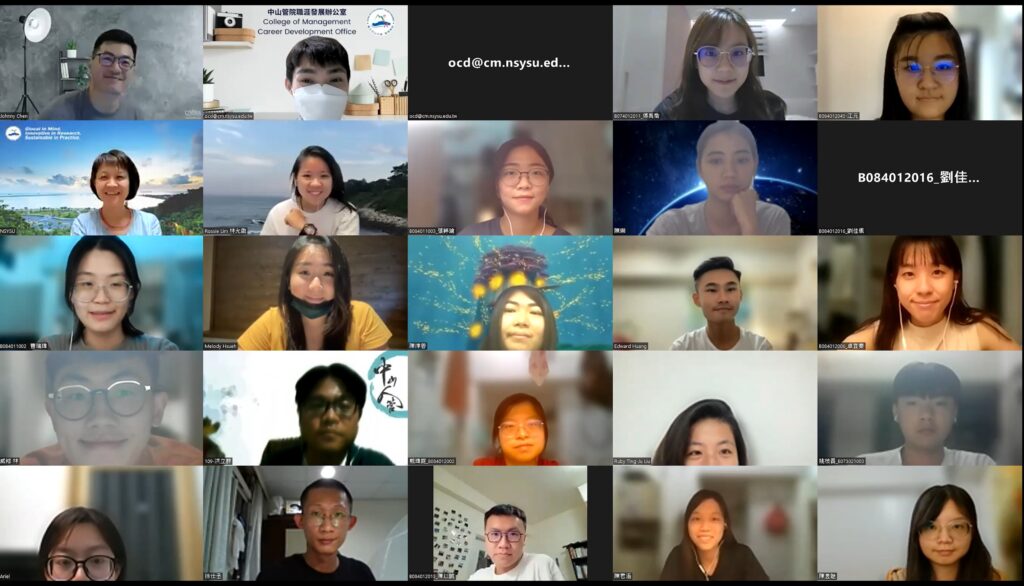On 19 May, the Office of Career Development organized a virtual sharing on the topic “The unexpected aspects of a Project Manager”. For this sharing, we are happy to once again have our alumnus, Johnny Chen, Hewlett-Packard’s Project Manager (PM), from the IBMBA-105 cohort, to share with our students his experiences as a PM.
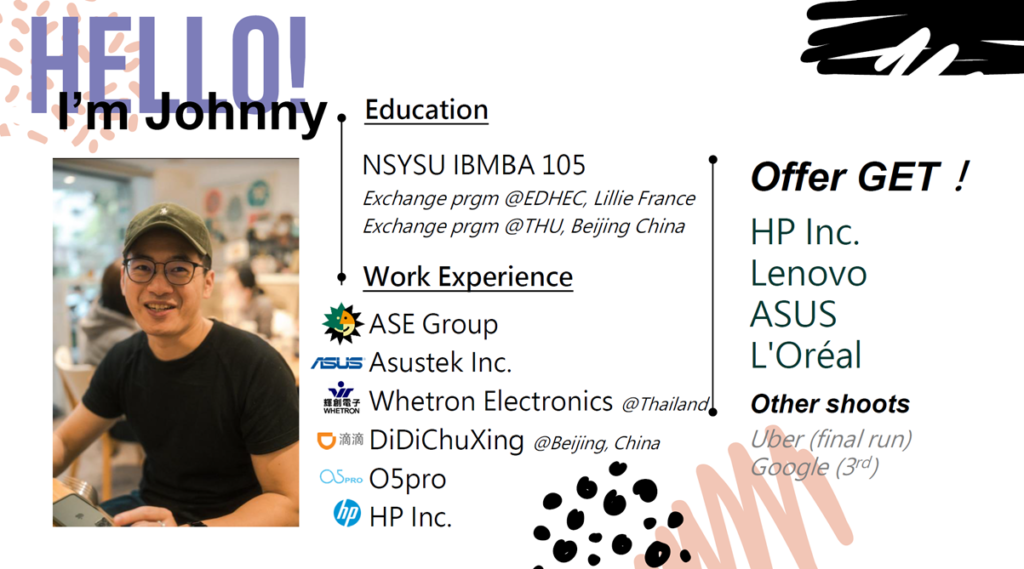
Kick-starting the event, after a brief introduction of his outstanding career as a PM in various prestigious companies, Johnny began sharing his daily life as a PM, providing an overview of what a PM does. For those who have attended previous PM-related sharing organized by the Office of Career Development, you should be aware that the job of a PM can be rather hectic. Having to deal with tight project timelines and endless meetings, one of the basics of PM is to have good time management to plan out what are the tasks to be completed within the day. As trivial as this may sound, such planning is required to ensure you remain on track on a given timeline. As a PM, you are often required to be adaptable and fast at picking up new skills/knowledge, as you would have to take on different responsibilities that are unique to each project, at different stages. Just like the saying, “the jack of all trades”, would probably be the best way to describe the job of a PM.
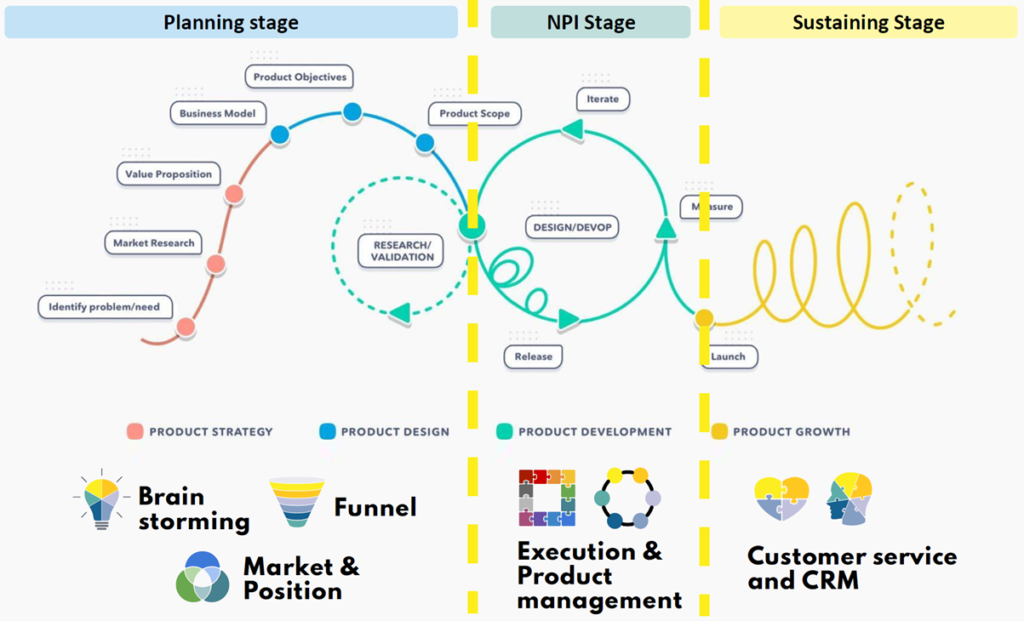
One of the most commonly faced problems of a PM has got to be none other than aligning the expectations for the partners, colleagues, departments, management, etc. As simple as it may sound, however, given the goal of each party participating in the project is different, PMs would often face issues in getting everyone to agree on a certain subject. Sometimes, the issues may even escalate into a fierce argument with the parties involved. As such, for students who are interested to start a career in PM, Johnny shared that a PM would require someone who has a high tolerance for stress and good communication skills. A PM would also sometimes require you to put yourself in the shoes of others and think about why they make certain decisions. Through this, you would be able to see from their perspective and try to come out with a win-win solution for all parties involved.
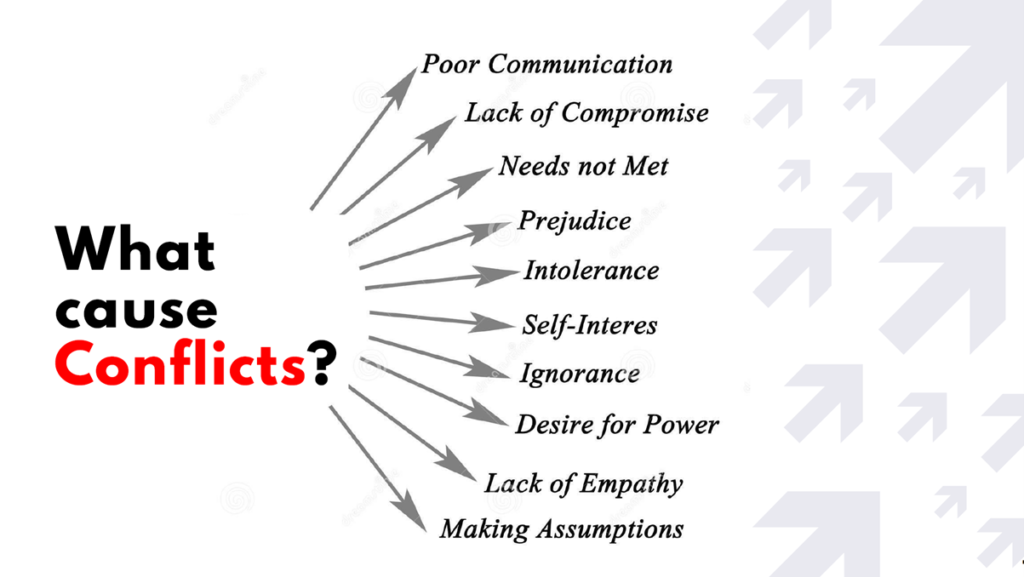
As for students who are keen to become a PM, Johnny provided some valuable tips on how to craft your CV and how one can prepare themselves for an interview. For example, when applying for jobs, one should avoid making the mistakes mentioned below:
1. Adopting recruitment platform default CV template (Try to search in Google for better templates)
2. Submitting the same CV for all job applications (You should customize your CV based on the company or job that you are applying to)
3. Applying for multiple positions in the same company (Nobody loves a lost sheep)
4. Applying for a job when you are unaware of the job description (You will be stumped by the interviewers during the interview)
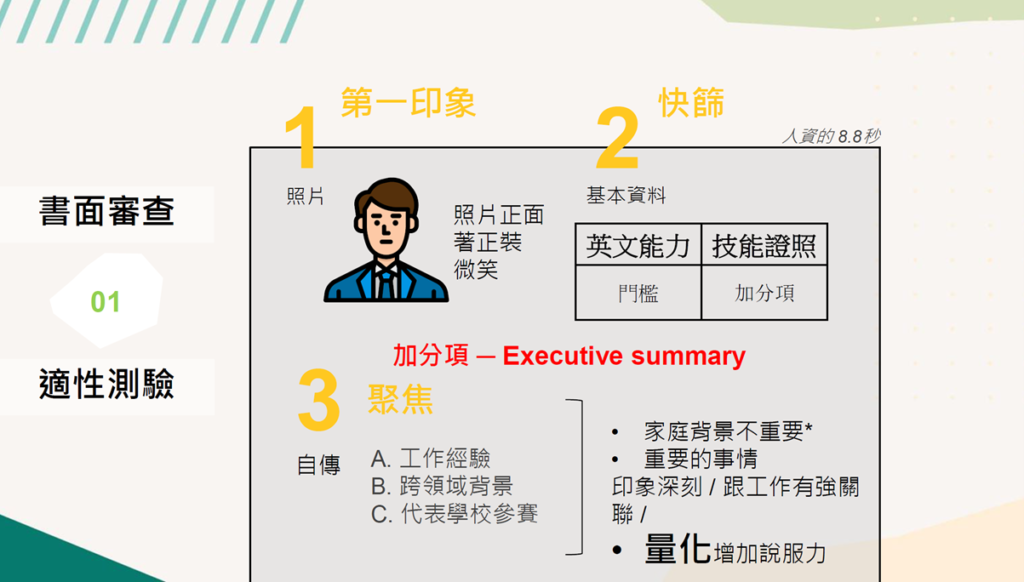
From the eyes of the recruiters, any of the above mistakes would cost you a potential shot for an interview. Take the part on applying for multiple positions in the same company as an example. Although applying for multiple roles in the same company sounds like you are widening your chance of landing a job in your dream company, however, to the recruiters, this only made them realize that you are unsure of what you want to do and that you are not entirely interested in any of the positions. According to Johnny, doing so will only result in your CV getting discarded in a sea of resumes and forever remaining in the shadows and not seeing daylight. Johnny also addressed some tips on how to prepare one’s CV (pic 4) and interview for both Taiwanese firms and international firms (pic 5 & 6). You may wish to take a look at them as a reference.
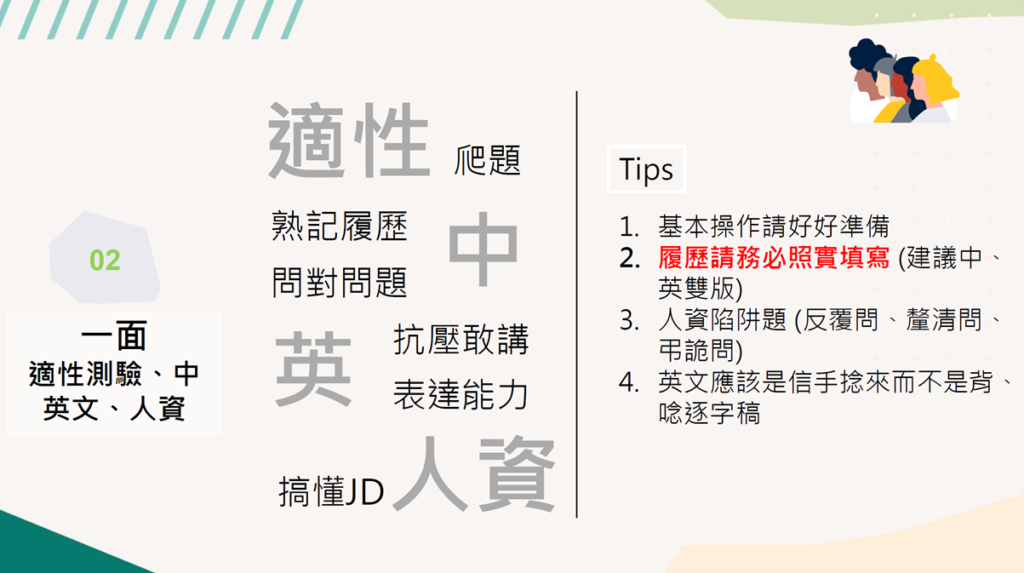
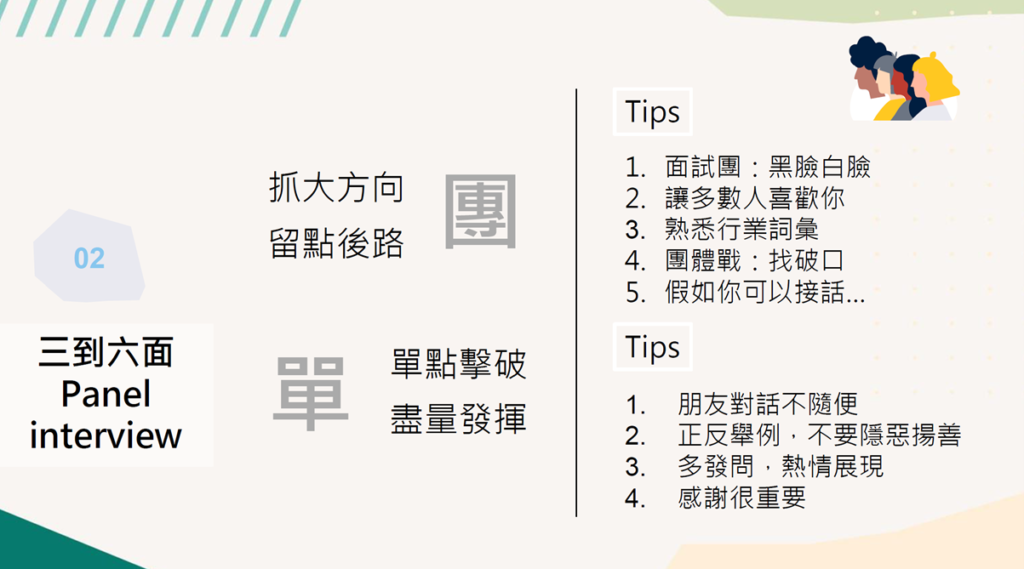
Towards the end of the sharing, Johnny addressed the questions that were raised during the session in the Q&A segment. One of the questions “how one can wind down from the stress accumulated at work”, Johnny mentioned that this would differ from person to person. For himself, he would often exercise during the weekend to release stress. As for his colleagues, he would meditate for 45 minutes a day in search of his inner peace.
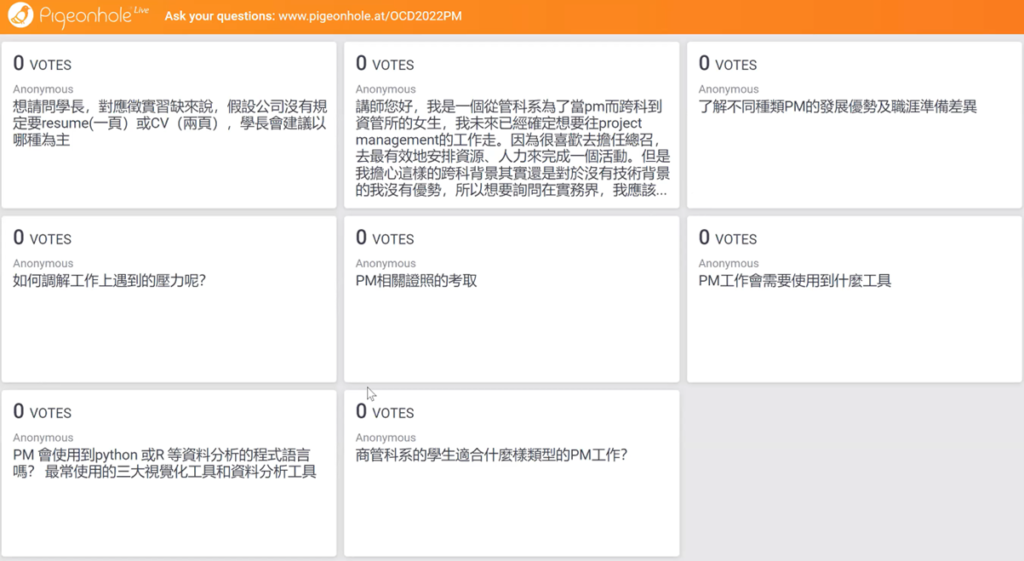
Regarding the question on the tools that a PM would need in his line of work, Johnny shared that the software that a PM uses is not as complex as what the rumors say. Even for data analytics, PM might not even need to know how to program R or Python. For the convenience of the students, Johnny shared with them some of the tools that he used as a PM (pic 7 & 8).

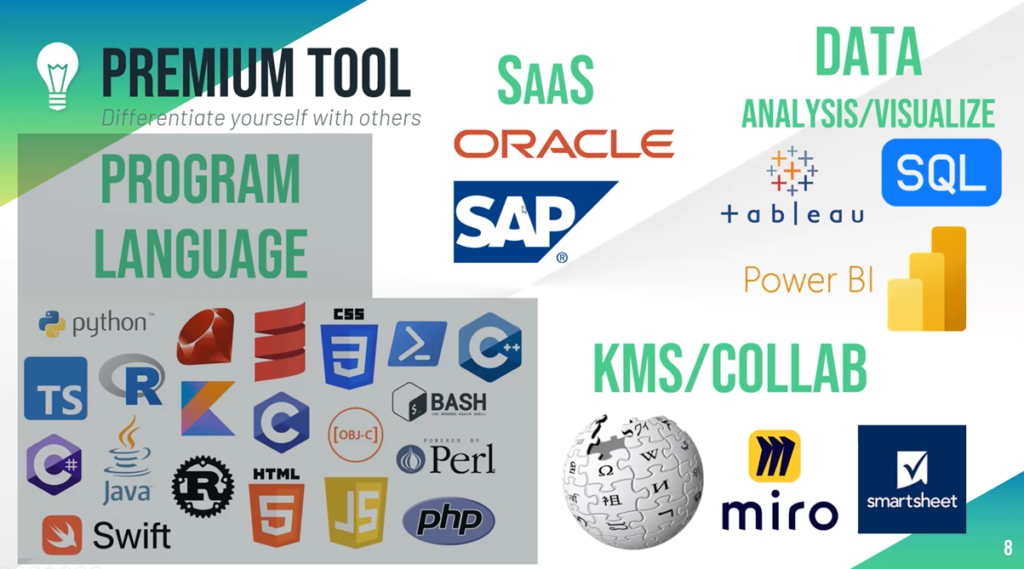
We would also like to take this opportunity to thank Johnny for taking time out from his busy schedule to join us for the sharing.
(Written by Andy Teo, proofread by College of Management)
